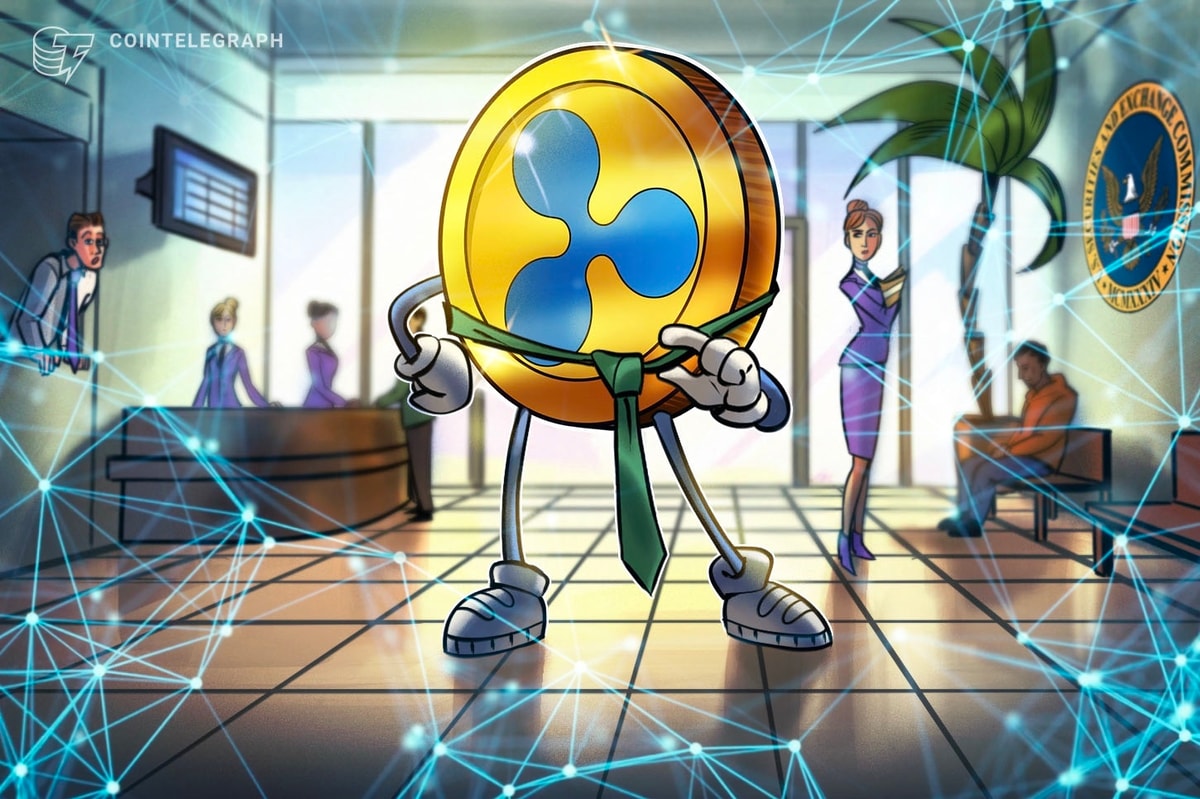Ripple to launch US dollar stablecoin, aims to compete with USDT and USDC

XRP issuer Ripple has announced plans to launch a United States dollar-backed stablecoin and hopes to compete with Circle and Tether for a slice of the market share over the next five years.
Cointelegraph spoke to Ripple chief technology officer David Schwartz ahead of the announcement, which outlines plans for the stablecoin that will initially be issued on the XRP Ledger and the Ethereum blockchain.
“It’s funny that the question you ask, we don’t have an answer to yet. What’s the ticker going to be, and what we’re going to call it? You’re just going to have to call it the Ripple stablecoin for now,” Schwartz said during a video call.
Related: Ripple ‘would certainly welcome’ an XRP ETF: Brad Garlinghouse
Ripple has been toying with the idea of launching a stablecoin for over a year, and Schwartz believes the existing stablecoin ecosystem is not as diverse and robust as it could be. Pinning the stablecoin market’s current value at $150 billion, Schwartz said there’s room for another big player:
“We think it will be over $2 trillion by 2028, and there’s only two market leaders. We don’t think it’s a winner-take-all-all ecosystem, particularly on the DeFi side.”
Ripple’s stablecoin will be pegged at a 1:1 ratio with the U.S. dollar, and the company plans to back the tokens with U.S. dollar deposits, short-term U.S. government Treasurys and “other cash equivalents.” Schwartz said that Ripple would look to emulate Circle’s focus on compliance and likely aim to compete against the USD Coin (USDC) issuer:
“Our angle is going to be very ‘compliance-first.’ We’re very transparent about how the assets are backed, so we’re kind of going to be directly competing against USDC.”
“We’re looking to grab market share. We’re not looking to finesse a couple of extra decimal points by taking risks with other people’s money,” Schwartz added when queried over Ripple’s plans to back the stablecoin with dollar deposits, U.S. Treasurys and cash equivalents.
The reserve assets are set to be audited by a third-party accounting firm, and Ripple will publish monthly attestations. Schwartz drew comparisons to the early days of Tether’s (USDT) stablecoin, where critics often sounded the alarm over the potential of the issuer to steal funds and the credibility of its reserve attestations.
“Initially when Tether first launched, a big concern was whether these guys would run off with all the money because they’re very incentivized to do that. Then, after a while, ‘you’re like, wait a minute, these guys have a long-term business,’” Schwartz said.

The Ripple chief technology officer added that the reality of launching a new stablecoin that could attract hundreds of millions, billions, or tens of billions of dollars would lead to these types of concerns. The company is leaning on its credibility, track record in the space and strong balance sheet to squeeze its way into the stablecoin market.
“I think we have a credible claim to be in the conversation near the top. If at the end of two years, we’re number three, but the market has grown to 10 times what it is today, that’s still pretty good,” Schwartz said.

Cointelegraph also queried why Ripple was interested in a stablecoin offering while XRP (XRP) continues to be positioned as the token for its real-time gross settlement system, currency exchange and remittance network primarily catering to financial institutions.
Schwartz says that Ripplenet serves non-bank payment companies using XRP for transparent payments. However, there are some markets that these firms cannot get into using XRP or supplement liquidity.
Related: XRPL blockchain plugs into cross-chain DeFi
“Having multiple paths to give customers a better experience means you have more customers. If we only did things with XRP, then where XRP wasn’t available, we would just have to tell a customer no,” Schwartz explained.
The introduction of a Ripple stablecoin is also set to complement the ecosystem’s recently launched automated market maker. Schwartz says the stablecoin will provide liquidity and capture volatility and arbitrage opportunities between multiple assets.
Magazine: Ethereum’s ERC-20 design flaws are a crypto scammer’s best friend



